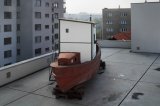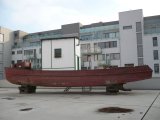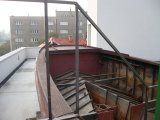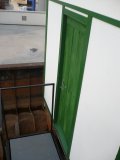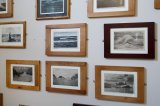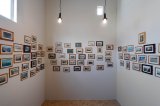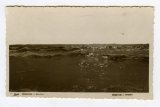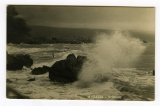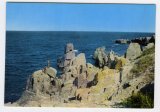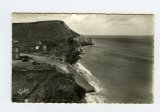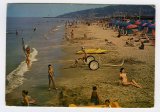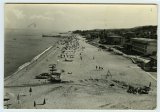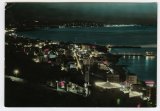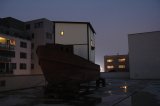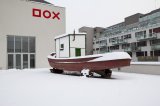193 m n. m.
2009
site-specific instalace, 14 x 3,2 x 4,8m, DOX, Praha
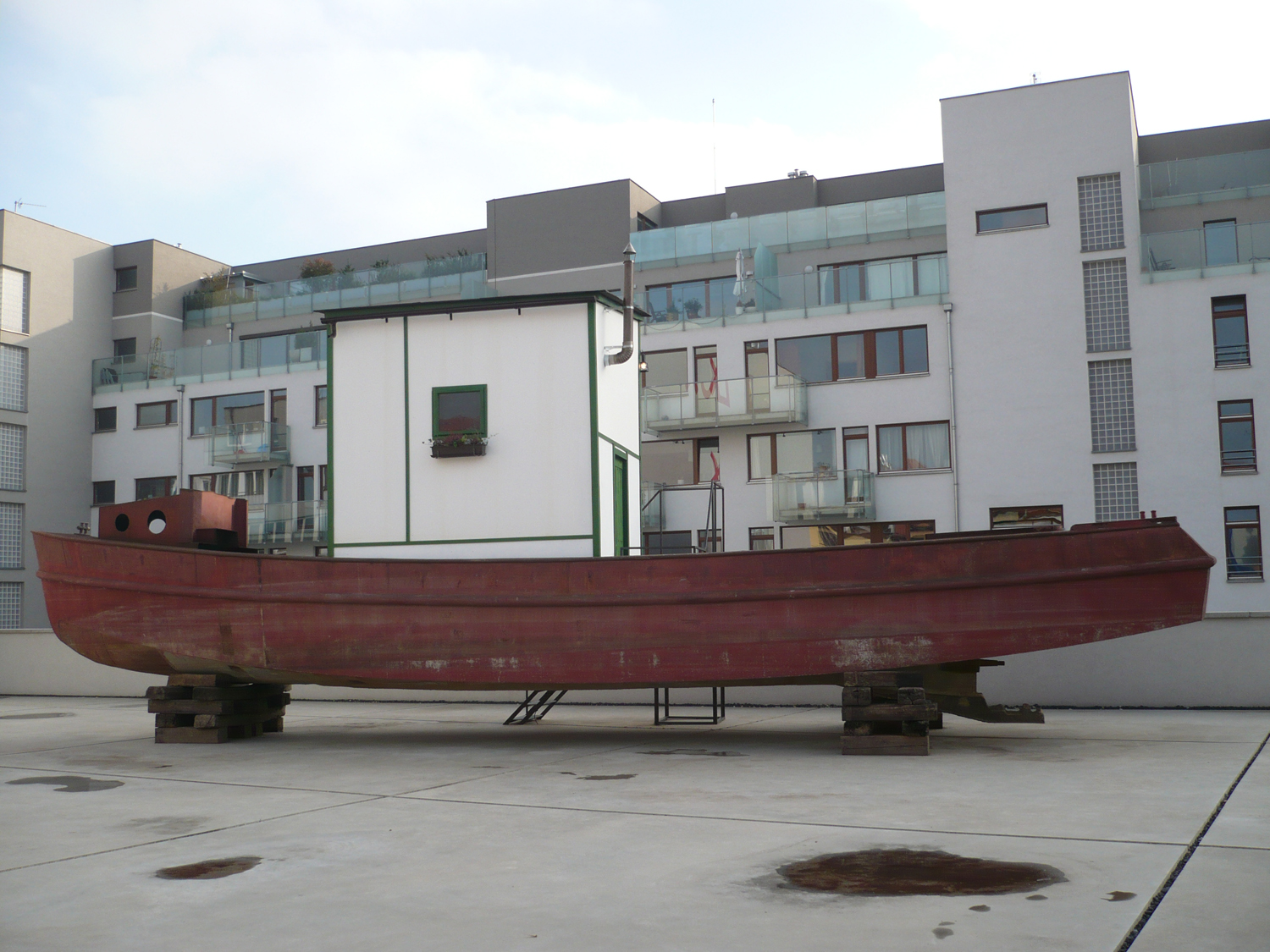
193 metrů je nadmořská výška DOXu. Instalace vznikla přímo pro místo: vnitrozemí, Česká republika, Holešovice, DOX. Holešovice jsou historicky spjaté s přístavem a slovo DOX mně vždycky evokovalo doky.
Tématem instalace je otázka možnosti uskutečnění touhy nebo snu. Když v Čechách není moře, o to silněji se objevuje v našich představách. Motivem je loď, kterou vnímám také jako metaforu života.
„Bordely a kolonie jsou dvěma hlavními typy heterotopie. Avšak uvědomíme-li si, že loď je plujícím kusem prostoru, umístěním bez místa, které existuje samo o sobě, které je samo v sobě uzavřené a současně je vydáno napospas nekonečnu moře, a že od přístavu k přístavu, od jedné plavby ke druhé, od bordelu k bordelu jde ve svém hledání toho nejdražšího pokladu, který se skrývá někde v zahradách, stejně daleko jako kolonie, potom pochopíme, proč byla loď, a to nejen pro naši civilizaci, od 16. století až do současnosti, jak velkolepým nástrojem hospodářského rozvoje (ale o tom teď nemluvím), tak i největší pokladnicí lidské imaginace. Loď je heterotopie par excellence. V civilizaci bez lodí sny vysychají, špionáž nahrazuje dobrodružství, a policie zaujímá místo pirátů.“ (Michel Foucault: O jiných prostorech / Myšlení vnějšku)
Loď, kerou jsem objevila v Podolí, kde bydlím, je původně z Hamburku, kde ve 40. letech vozila písek. Loď odkazuje k horizontu, k moři, symbolu dálky nebo nenaplněné touhy, který v místě chybění (ve vnitrozemí) vyžaduje naplnění jinými, zástupnými modely.
Typickým příkladem realizace snu na omezeném prostoru je u nás chatařství. Postavená „univerzální“ chata reprezentuje nejenom chatařství, ale obecně lidské snažení ovládnout svůj vlastní prostor, vymezit se vůči světu, vlastně uzavřít se. Také proto má podivně kutilské proporce. Chata, nepatřičně zbudovaná v prostoru lodi, mění loď v našich představách spíše na dlouhodobě chátrající, rezavějící vrak, místo, z něhož zbývá pouze touha po ztracených dálkách.
Umístění lodi paradoxně na terasu odkazuje také k fenoménu kosmických plavidel, zjevujících se z nebe a křižujících horizont.
Pohlednice s motivem moře sbírám průběžně dva roky. Pohledy posílané z okrajů pevniny do vnitrozemí představují fyzicky putující fotografické obrazy. Zarámováním jsem skryla zadní strany pohlednic, osobní, literární rovinu, která odhaluje adresáta, konkrétní vzkaz a umístění v čase. Mohlo by to být kdekoliv a kdykoliv, někde na pobřeží. Projekční plocha pro imaginaci.
Pohlednice jsou instalovány ve vztahu k centrálnímu prostoru chaty: vlevo jsou pohledy zachycující levý břeh pevniny, uprostřed výhledy na horizont a vpravo pravý břeh. V určité rovině jde tedy o simulaci situace, kdy se člověk uzavře ve své chatě, ve svém snu, a najednou zjistí, že okno je příliš vysoko a že mu chybí nějaký „horizont“.
Alena Kotzmannová: Koncept textu přečteného k prezentaci finalistů CJCH na AVU, 4. 11. 2009
